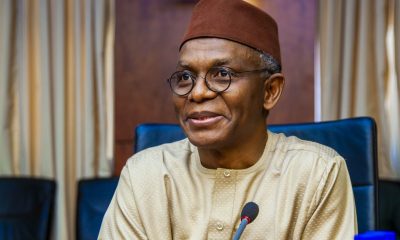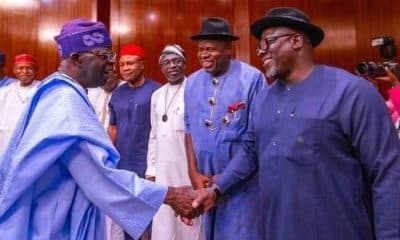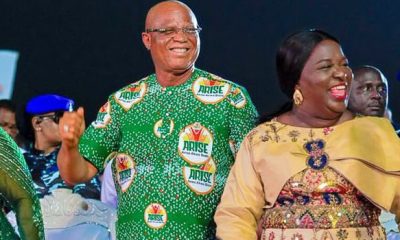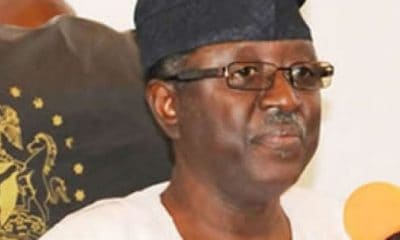Nigeria News
“Dismantling Democratic Institutions Through Undemocratic Means” – CUPP Slams Tinubu
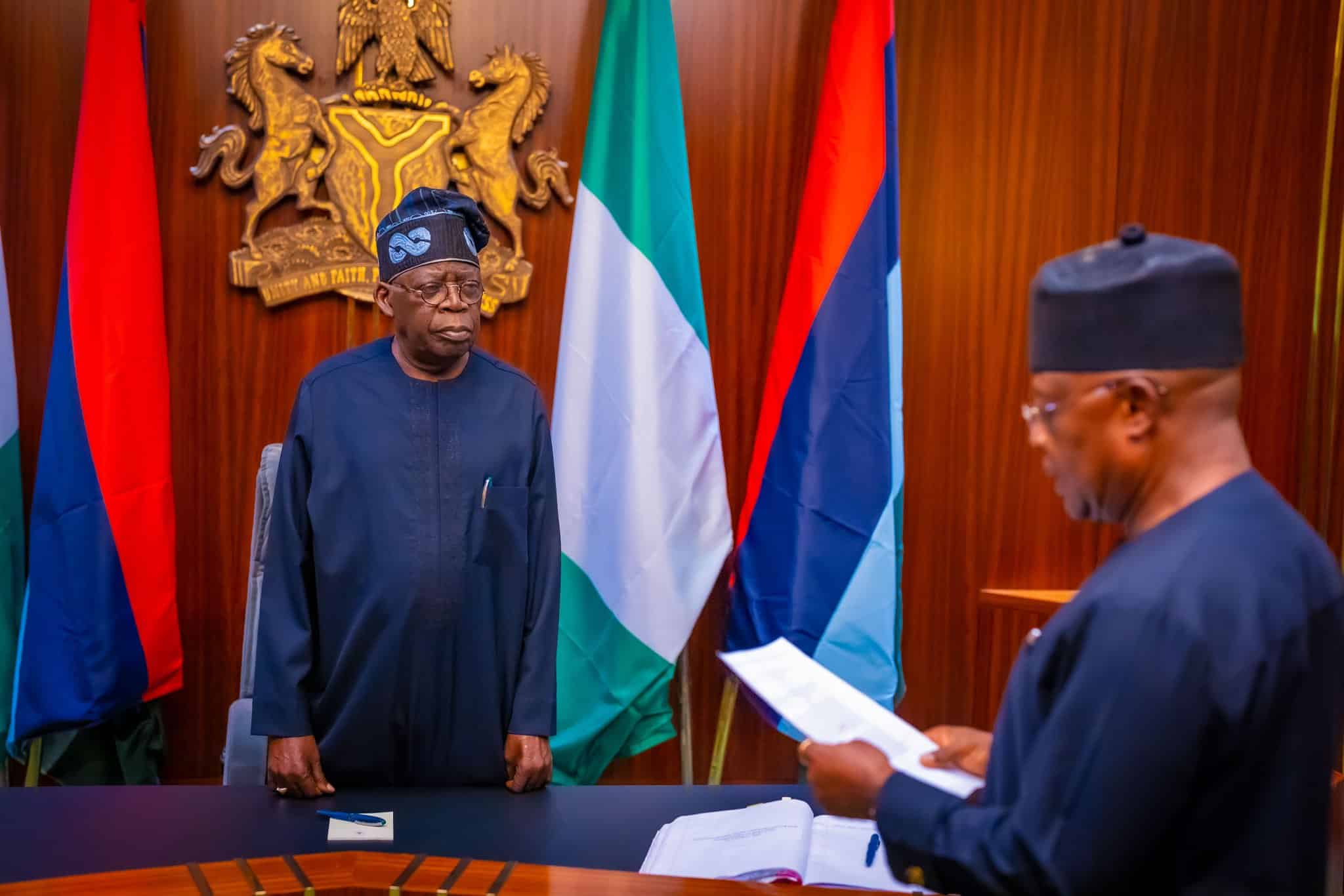
The Coalition of United Political Parties (CUPP) has accused President Bola Tinubu of undermining Nigeria’s democratic foundation through what it described as “undemocratic means” in Rivers State.
Speaking on Monday in Abuja, CUPP National Secretary, Chief Peter Ameh, criticised the President’s imposition of a state of emergency and the appointment of a retired military officer as sole administrator in the state, warning that such actions pose a grave threat to the rule of law and the country’s constitutional democracy.
According to Ameh, President Tinubu had previously earned public admiration for his legal challenge against Nigeria’s 36 governors over financial autonomy for local government councils, a case that culminated in a landmark Supreme Court ruling in favour of grassroots independence.
Ameh said, “This decision was heralded as a step toward strengthening Nigeria’s grassroots governance, reinforcing the constitutional mandate for elected local leadership.”
However, he lamented that those earlier gains are now being overshadowed by actions he believes contradict the very principles the President once appeared to champion.
“Yet, the triumph has been overshadowed by actions that appear to contradict the very principles Tinubu claimed to have fought for, particularly in Rivers State, where his administration’s approach has sparked widespread concern,” Ameh stated.
He further alleged that the President’s government is undermining democratic institutions in the state through unlawful means.
“In a stunning twist, Tinubu’s administration can be seen dismantling democratic institutions in Rivers State through undemocratic means,” he said.
Ameh specifically condemned the dismissal of the chairman and members of the Rivers State Independent Electoral Commission (RSIEC), replaced by a sole administrator—a move he described as unconstitutional and defiant of judicial rulings.
“The removal of the chairman and members of the Rivers State Independent Electoral Commission (RSIEC) and their replacement with a sole administrator has been labeled unlawful and a direct affront to the Supreme Court’s ruling,” Ameh added.
He continued, “I am among those who argue that this move not only undermines the judiciary but also flouts the Constitution, which Tinubu swore to uphold.”
The CUPP scribe also criticised the reported use of military force in removing elected officials, linking it to a broader pattern of executive overreach and disregard for constitutional democracy.
“The forceful, military-backed removal of elected officials and the subsequent appointment of local government administrators have further fueled allegations that the President is disregarding the rule of law—a cornerstone of any functioning democracy,” he remarked.
Highlighting constitutional concerns, Ameh questioned the legal basis for such an appointment, challenging the legitimacy of the sole administrator’s role.
“The question at the heart of this controversy is clear: what section(s) of the Nigerian Constitution provide for the appointment of a sole administrator or justify such interference with democratic institutions?” he asked.
“The answer, many contend, is none. The Constitution explicitly outlines the framework for democratically elected local government councils under Section 7, with no provision for a sole administrator to usurp these roles,” he asserted.
Ameh warned that this development may create a dangerous precedent, potentially eroding democratic progress achieved over the years.
“By imposing such a figure in Rivers State, Tinubu’s administration risks setting a dangerous precedent, one that could erode the democratic gains painstakingly achieved over the years,” he said.
Quoting former UN Secretary-General Kofi Annan, he reminded the President of the broader significance of the rule of law in national development.
“Adherence to the rule of law, as former UN Secretary-General Kofi Annan aptly noted, is not just about security or economic stability—it is the third, indispensable pillar of a thriving nation,” Ameh stated.
“Often we mistake stability, in terms of security and economic activity, to mean a country is doing well,” Annan said.
“We forget the third and important pillar: rule of law and respect for human rights.” Tinubu’s actions in Rivers State appear to neglect this critical principle.”
Ameh also observed that the sole administrator in Rivers is now making decisions and appointments traditionally reserved for elected leaders, a situation he described as both unlawful and destabilising.
“This unchecked authority has birthed a cycle of illegality, as one unlawful act begets another.
“The sole administrator’s role, unrecognized by law, threatens to destabilize the political structure of the state, replacing democratic processes with arbitrary governance,” Ameh concluded.

